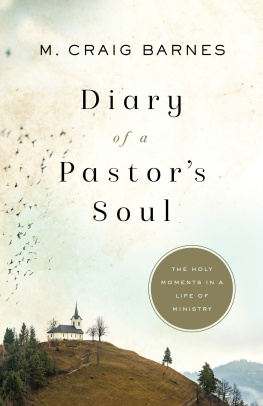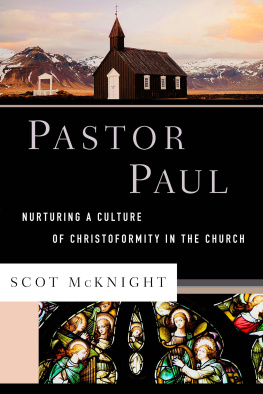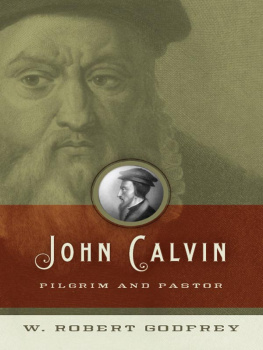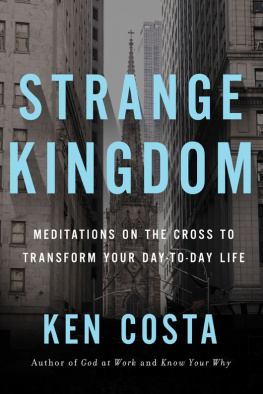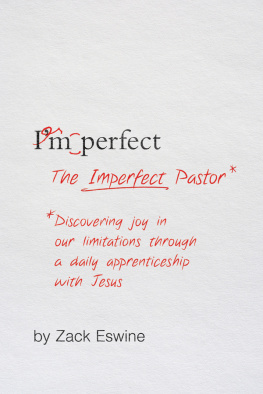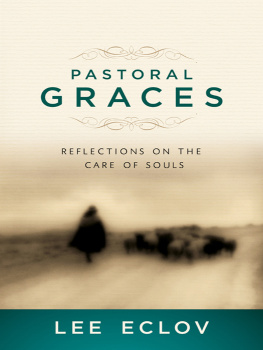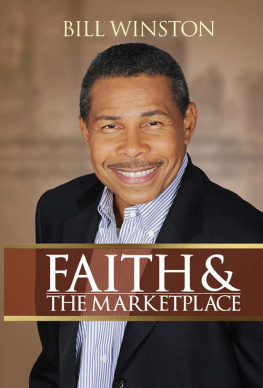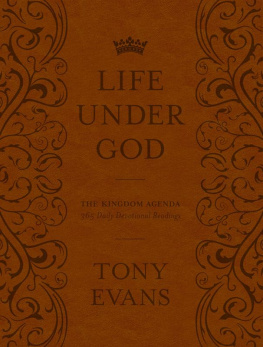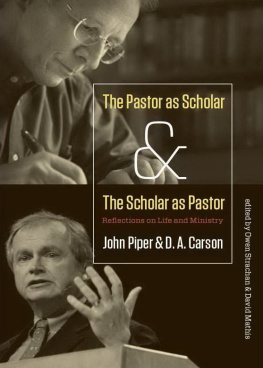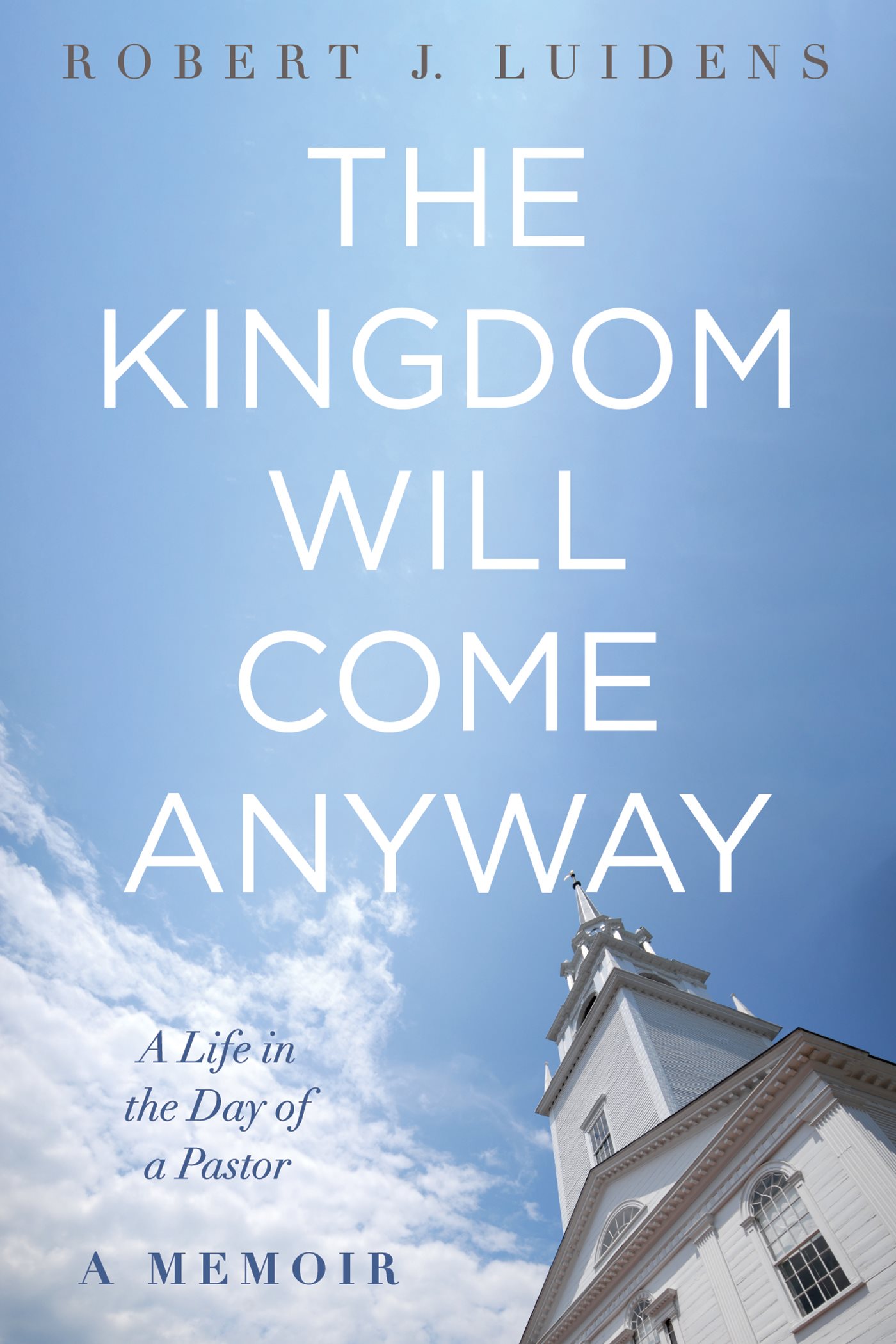The Kingdom Will Come Anyway
A Life in the Day of a PastorA Memoir
Robert J. Luidens
Desert Detour
I t happened again and again. Both during my seminary years and my first decade in parish ministry, I would end up in discussion circles, attempting to introduce myself to new peers. And I would inevitably end up recounting the detour to the camp.
The various facilitators in those classroom and retreat settings back then would predictably invite each participant to share a bit about who we were and about what might have helped to shape us to that point in our lives. What would I typically feel drawn to describe? That springtime trip back when I was not yet ten years old.
My family was living in Beirut, Lebanon at the time. Dad and Mom decided it would be fitting for our family to spend our Holy Week vacation in Jerusalem, walking the Mount of Olives and visiting the traditional sites that define Maundy Thursday, Good Friday, and Easter Sunday.
The drive from Beirut to Jerusalem took us eastward to Damascus, Syria, and then southward through the arid plains that led to Amman, Jordan. From there we were to head westward into the West Bank of Jordan and ultimately up to the divided city of Jerusalem. The five of us squeezed into a taxi for hire in Beirut, with our typically jovial Lebanese driver at the wheel. Ahmed was a family favorite, having previously taken us on several day trips around Lebanon. My parents trusted him, and he seemed to enjoy being our chauffeur and tour guide.
But something unexpected and unsettling happened during that eight hour drive from the coastal city of Beirut to the holy heights of Jerusalemsomething that shaped me, that transformed me.
As our trip entered into its southward leg from Damascus to Amman, driving through the desert-like plains of western Jordan, a heated conversation began to unfold in the front seat. It took me a few minutes to catch the essence of the quiet but intense exchange unfolding between Ahmed and my father. Dad was explaining that up ahead there was a right turn off of the road that Ahmed should take. That side road led westward, well off the main road to Amman, and into a Palestinian refugee camp.
Ahmed was clearly in disagreement with Dads instruction. Saheeb, I recall his saying to Dad, thees ees noht goohd ahdea. Their quiet but intense debate migrated back and forth between English and Arabic. Sitting in the back seat of the taxi between my intrigued sister and my discomfited mother, I was fascinated if not distraught by the stridency of the low-voiced discussion up front. In retrospect, Ahmed was likely feeling genuine concern for our familys safety in the refugee camp. Westerners were few in number in the camp, and were understandably looked on by some therein with suspicion as being contributors to the dire circumstances they were now experiencing as refugees from their original homes.
But Dad prevailed. Clearly against his counsel to my father, Ahmed made the right hand turn. We drove some ten or fifteen minutes on a dirt-packed road, and arrived at the outskirts of a sprawling enclave in the desert. The camp was settled in 1948 by Palestinians who had fled their centuries-old homes during the carnage of the war that led to the establishment of the state of Israel. It was one of the many refugee camps that were now home to the otherwise homeless.
Ahmed drove us into the camp, through roughed out lanes that led to the buildings that housed United Nations workers. Those various internationals helped to provide the basic provisions necessary to keep the camps tens of thousands of Palestinian refugees alive as they waited for the day, still not yet arrived more than a half century later, when they would be able to return to their original homes.
Dad exited the car and then tracked down and paid pastoral calls on several medical and missionary peers serving the camps desperately needy residents. As he did so, Mom allowed my brother, sister, and me to move about a bit in close proximity to the car, in which Ahmed remained with a grim expression plastered on his face.
Finally Dad returned to the car. He proceeded to explain to us what we were seeing, but that regrettably too few people around the world cared to think about. Once back on the road he described how it was these thousands upon thousands of innocents, old and young alike, had become victims of a world gone mad with war and blind with apathy. I recall sitting in the back seat, twisting around as we passed through the camps outskirts, looking at the hovels of the homeless and the faces of the forgotten. I felt a tight knot in my stomach. A bitter taste in my mouth. A gnawing pain in my heart.
I dont recall how or whether Dad said explicitly, Do you see how this is wrong? But I recall feeling that it was. Knowing that it was.
Im convinced that was when I began to be shaped, transformed. A seed of discomfort was planted. A sense of injustice was incited. A desire for redemption was born.
Years later I queried my father about his decision to instruct Ahmed to take a detour that day on the Jordanian plains. He quietly acknowledged his intents were indeed twofold. First, he desired deeply to connect with his friends who were giving themselves in day to day service to the Palestinians whose lives were defined by that refugee camp. Second, he also yearned intensely to expose his three children to what our Palestinian neighbors were forced to endure as a result of dehumanizing political and religious decisions made hundreds and thousands of miles away.
Dad succeeded. At the same time he had embraced those in service within that camp, he purposefully had revealed to his offspring what human suffering looks like in its rawest form.
That detour to the camp still shapes me. Just as it was an event I felt compelled decades later to describe to my seminary classmates and my friends in ministry, it remains a moment in my lifes pilgrimage that reminds me. That re -minds me.
In the days immediately after that detour, my family walked the Palm Sunday path down the Mount of Olives, sat beneath the trees of Gethsemane, and worshiped in the Garden of the Empty Tomb. And doing so was framed by that detour taken days earlier in the desert.
Such detours, Ive come to believe, can lead us to truth. Can call us to compassion.
He Knew my Name on the Cross
I lay on the top bunk, vaguely aware of the quiet snoring coming from the one beneath me. My freshman year roommate seemed always to fall asleep way before me, and that was happening again. But this time, there was no question as to why I was still wide awake.
It was Maundy Thursday, almost Good Friday according to the alarm clock on my desk. Earlier that evening I had attended the quiet Communion service in the college chapel, led by our deeply respected chaplain. Over previous years I had been to many such services on the Thursday evening of each years Holy Week. This evenings version was not all that different from all of those I attended with my parents growing up. But now, lying in bed, something this time felt different. I hadnt yet put my spiritual finger on what, but I lay there mulling it over.
The readings and meditation during the service just a few hours earlier had recounted Jesuss meaning-laden Last Supper and unsettling prayer in the Garden of Gethsemane, followed by his arrest, trial, humiliation, and crucifixion. With the chapel lights extinguished, all of us had listened to Jesuss last words spoken before he died. Following the reading of his having breathed his last, we exited the chapel in silence. I had walked back to the dorm with a handful of my freshman friends, and then had prepared for bed. Now lying awake, my roommate already in dreamland, I found myself revisiting the images embedded in that evenings scripture passages. As familiar as they all were, I found myself focusing on that of Jesus nailed to the cross. I envisioned him looking up on occasion, including when he was heard to pray for divine forgiveness on behalf of his executioners, and when he cried out in agony that he felt abandoned by his God. But I realized that I also pictured Jesus looking down from the cross, including when he addressed his mother and John, and when his thirst became overwhelming.


